The Best Age To Start Learning Music - Is It Ever Too Late?
No matter your stage in life, learning music enhances brain function, boosts mood, improves coordination, and strengthens social bonds. From sparking creativity in kids to keeping minds sharp in seniors, the benefits are endless. It’s never too early—or too late—to start your musical journey. Let music bring joy, confidence, and growth into your life! 🎹✨
MUSIC EDUCATION
Music is a timeless and universal language that connects people across generations, cultures, and backgrounds. Whether you are a child, an adult, or a senior, learning music offers a variety of life-enhancing benefits that go far beyond simply playing an instrument or singing. From boosting cognitive abilities to fostering emotional well-being and creating opportunities for social interaction, music plays an integral role in personal development and health. What makes learning music even more special is that it’s never too early or too late to start. Regardless of age, music can enrich your life in countless ways.
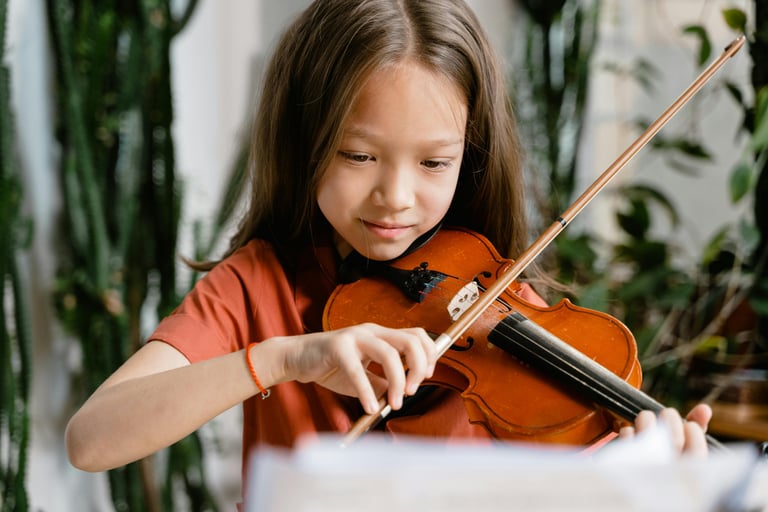

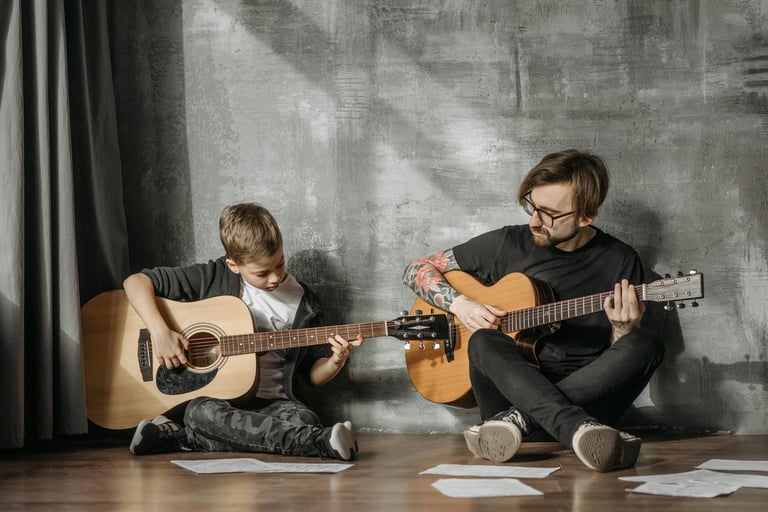

The Benefits of Learning Music for Children
Childhood is one of the most formative periods of life, and introducing music during these early years can have lasting effects on a child’s development. Here are several reasons why learning music is so beneficial for children:
1) Strengthens Neural Connections – Studies have shown that musical training strengthens neural pathways in the brain, particularly in areas related to language, attention, and problem-solving. Children who engage in music education are often better at processing language, which has a positive impact on reading and communication skills.
2) Improves Emotional Regulation – Learning to play an instrument or sing gives children a constructive way to express and understand their emotions. Music education helps children process feelings like frustration or excitement in a healthy, structured way. It also promotes emotional maturity as children learn to navigate the ups and downs of mastering a skill.
3) Fosters Teamwork and Collaboration – Music, especially in group settings like choirs, orchestras, or bands, teaches children the value of working together toward a common goal. By participating in musical activities, children learn how to collaborate effectively, share responsibilities, and support one another, all of which are valuable life skills.
4) Cultivates a Sense of Achievement – Learning music involves mastering complex skills over time. As children overcome challenges, they gain a sense of accomplishment and confidence. Successfully playing a piece of music or mastering a new technique gives children the motivation to continue learning and pushing their limits.
5) Encourages Multitasking and Focus – Playing an instrument requires concentration and the ability to process multiple layers of information simultaneously. Children learn how to read music, keep time, and coordinate their movements, which improves their multitasking abilities and enhances focus and attention in all aspects of life.
Why Adults Should Learn Music?


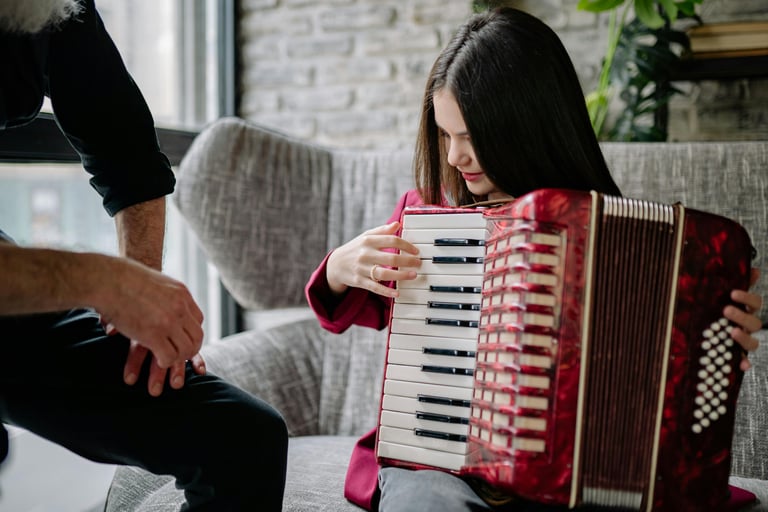

While it’s often assumed that music is primarily for children, adults stand to gain a multitude of benefits by learning music as well. Here are several reasons why adults should consider picking up an instrument or learning to sing:
1) Improves Mental Agility and Flexibility – Learning music engages multiple areas of the brain, including memory, focus, and creativity. This mental stimulation keeps the brain active and improves cognitive flexibility, which is particularly important for adults who want to stay sharp as they age. Music forces the brain to adapt and create new pathways, enhancing overall cognitive function.
2) Provides Emotional Release and Relaxation – Music provides a safe and effective way for adults to decompress after a stressful day. Playing an instrument or singing can be an emotionally freeing experience, offering a way to release tension and calm the mind. Whether playing your favorite songs or composing your own, music becomes a personal escape from life’s pressures.
3) Promotes Lifelong Learning and Personal Growth – Engaging with music as an adult promotes a growth mindset. It encourages individuals to embrace new challenges, continue learning, and explore their creative side. Music allows adults to express their personality, broaden their artistic horizons, and connect with their inner self in a way that is both stimulating and fulfilling.
4) Improves Social Connection – Playing music can be an excellent way to meet new people and form connections. Whether you join a community band, attend music lessons, or participate in group jams, music provides ample opportunities for adults to engage with others. These social interactions can reduce feelings of isolation and strengthen relationships, fostering a sense of belonging.
5) Supports Mental Health – Music is widely recognised for its positive impact on mental health. Engaging with music can reduce feelings of anxiety, depression, and stress. The act of creating or listening to music stimulates the release of dopamine, a neurotransmitter associated with feelings of happiness and satisfaction, helping adults manage their emotional well-being.
The Power of Music for Seniors
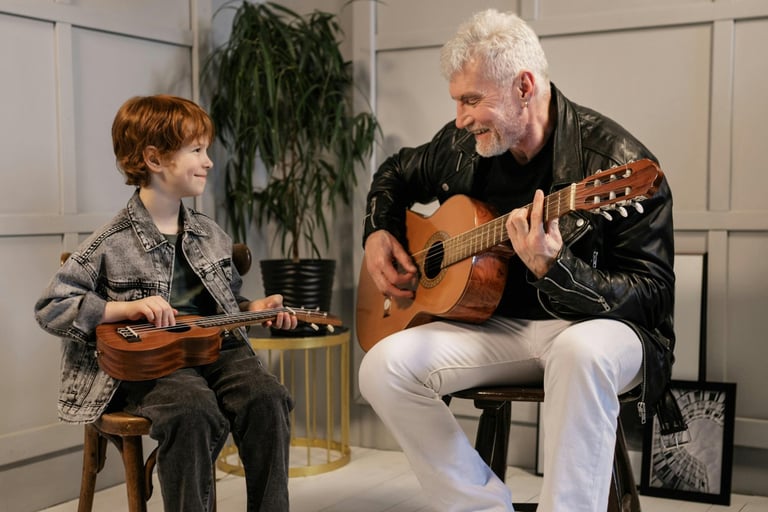

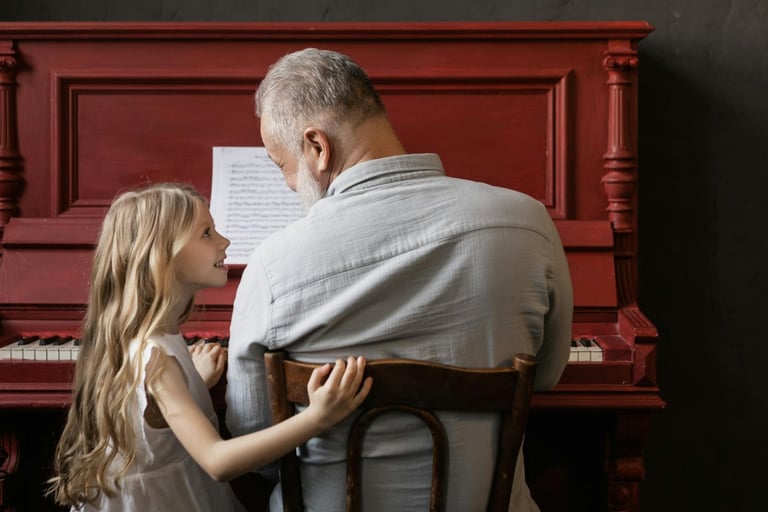

For seniors, the benefits of learning or engaging with music are especially powerful. Music offers a variety of ways to enhance both mental and physical well-being, helping seniors stay active, socially engaged, and emotionally fulfilled. Here are a few reasons why music is so beneficial for older adults:
1) Encourages Brain Health and Memory Retention – For seniors, learning music or continuing to engage with music has been shown to slow cognitive decline and boost memory. Music has been found to help improve brain plasticity, stimulating regions involved in memory, language, and cognitive functions. In some cases, music therapy has even been used to help seniors manage symptoms of Alzheimer’s disease and dementia.
2) Promotes Physical Activity and Coordination – Playing an instrument or engaging in music-based activities requires physical movement, whether it's tapping the feet to the rhythm or coordinating hand movements. This promotes physical activity and helps preserve motor coordination and agility. For seniors, regular physical engagement with music can enhance dexterity, improve posture, and increase physical stamina.
3) Strengthens Social Bonds – Music is a great way for seniors to form and maintain social connections. Whether through music classes, group performances, or simply enjoying music with friends and family, music encourages social engagement. These interactions can help reduce feelings of loneliness and foster a sense of community and shared experience.
4) Boosts Emotional Well-Being – Music has a profound ability to lift spirits and reduce stress, which is especially important for seniors who may experience feelings of isolation or depression. Listening to familiar songs or playing an instrument can evoke positive memories, create a sense of nostalgia, and promote feelings of joy and comfort.
It’s Never Too Late to Start!
The benefits of learning music extend to all ages. Regardless of whether you are a child just starting out or a senior rediscovering a passion for music, learning to play an instrument or sing offers incredible advantages. Music promotes brain development, reduces stress, fosters creativity, and improves social well-being.
No matter where you are in life, it’s never too late to pick up an instrument, join a music group, or start exploring the world of music. The act of learning music is not just about creating melodies—it’s about enhancing cognitive abilities, finding emotional expression, and connecting with others. So, whether you’re a child, an adult, or a senior, dive into the world of music. You’ll be amazed at how it can transform your life, bringing joy, fulfilment, and growth every step of the way. 🎶✨
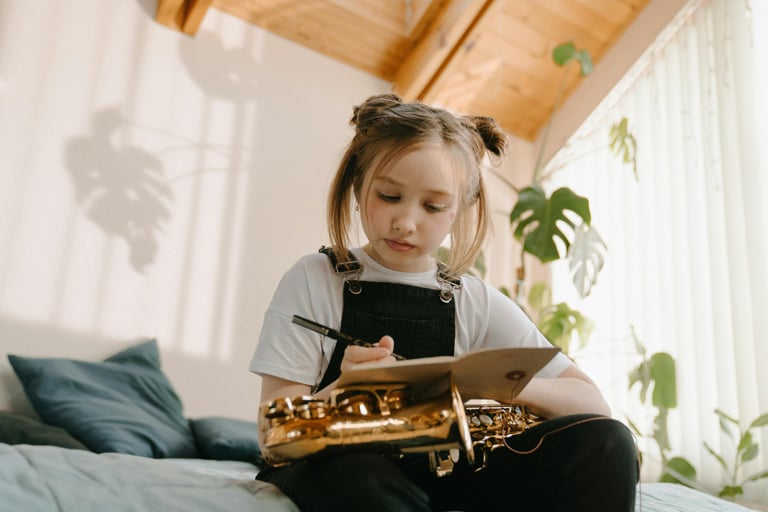

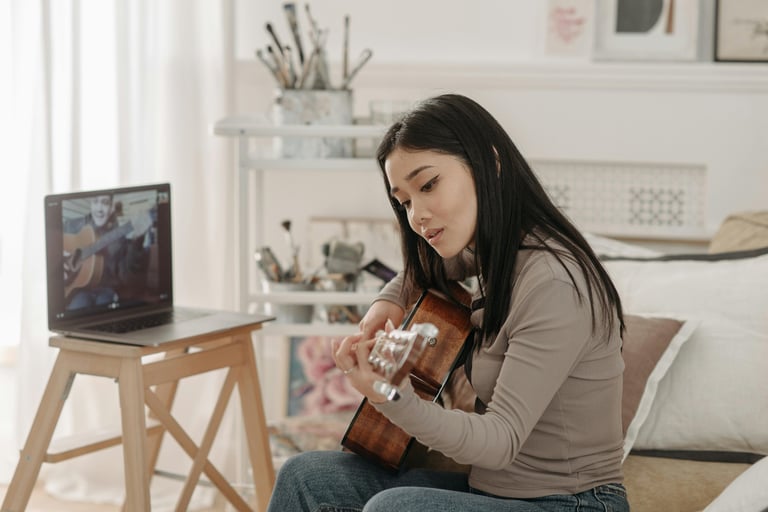

The Timeless Benefits Of Learning Music At Any Age
"Grandma’s First Piano Recital"
At 68, Margaret decided to learn the piano. She had always loved music but believed she was “too old” to start. Her grandson, a budding pianist himself, encouraged her, reminding her that music has no age limit. With trembling fingers, she played her first simple melody. The notes were slow, a little uneven, but filled with joy. Months turned into years, and one evening, at a family gathering, Margaret performed her first full song—Beethoven’s Ode to Joy. As she finished, her family erupted in applause, tears in their eyes.
“I thought learning music was for the young,” she laughed. “Turns out, it’s for the young at heart.”
No matter your age, it’s never too late—or too early—to start your musical journey. 🎶✨
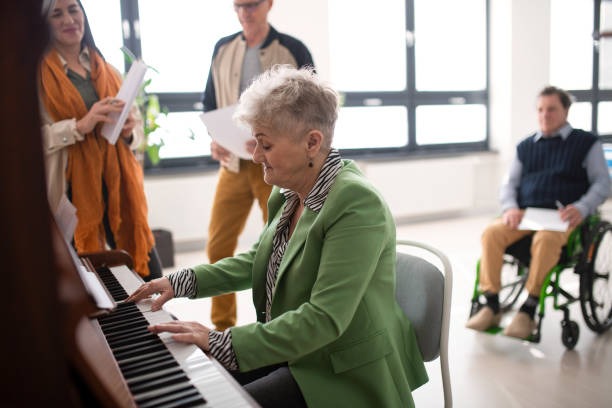

Share this on:
About The Author


Padmavathy Divakaran is a distinguished pianist, arranger, and music educator, currently serving as the Director of Aum Piano Studio. Formerly the representative for MTB Exams in Tamil Nadu and Karnataka - a globally recognised music education board based in the UK - she has consistently championed excellence in music education. Padmavathy holds a BA (Honours) in Music from Middlesex University, London, and a Diploma in Higher Education – Music from KM College of Music and Technology, Chennai. Her outstanding talent has been recognised through multiple scholarships and awards, including those presented by Dr. A.R. Rahman. As a performer, she has showcased her versatility across classical and contemporary genres, playing with orchestras in both London and Chennai. She was a core member of the Roliwood Seaboard Ensemble, playing a key role in the global launch of the ROLI Seaboard. Her artistry has earned her the honour of performing at prestigious events, including a special performance for Prince William, Simon Cowell, and other notable personalities at The Founders Forum in the UK — a testament to her global reach and artistic impact.